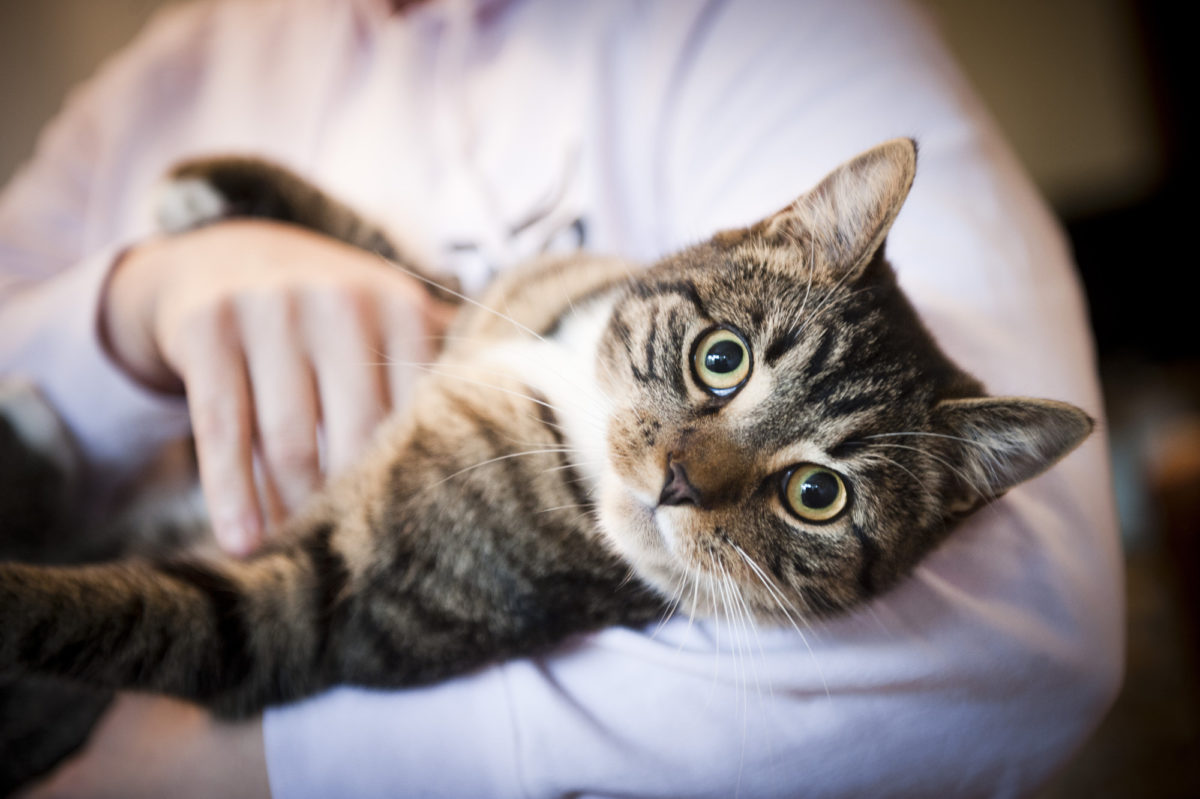
Maddie’s Fund and several of its partner organizations are fearmongering about the pandemic by recommending separating pets from people and other animals if those animals come from a household where people tested positive for COVID-19. They also note that, “If the pet is brought to a shelter, they should be kept away from the general population for 14 days.” In a regressive pound, this amounts to a death sentence. In homes where isolating the pet from people is not possible or leads to anxiety about the risk of infection, this could mean surrender to one of those pounds.
More broadly, it undermines the welfare of dogs and cats by encouraging people to view them as disease factors, placing them at risk of actions resulting from fear, such as abandonment.
It has the potential to reverse a very positive trend occurring all over the country as a result of people finding themselves in home confinement: shelters being emptied by adoption and fostering in record numbers.
It undermines what for many people is a source of great comfort at this challenging time by claiming, with no evidence, that the animals in whom they find love, comfort, and companionship are a potential danger and should be avoided.
And it adds anxiety to a situation that is already terrifying for many people.
That is why the World Health Organization cautioned about “an overabundance of information — some accurate and some not — that makes it hard for people to find trustworthy sources and reliable guidance when they need it.”
In times like this, it is vital to the public welfare that we follow the evidence. The American Veterinary Medical Association says, “that dogs and cats are not readily infected with SARS-CoV-2, we have little to no evidence that they become ill, and no evidence that those that may be naturally infected spread SARS-CoV-2 to other pets or people.”
The Centers for Disease Control says, “there is no evidence that companion animals, including pets, can spread COVID-19 to people or that they might be a source of infection in the United States.”
The United States Department of Agriculture says, “there is no evidence to suggest that: pets: can spread COVID-19 infection to people.”
And noting several important distinctions with the tiger at the Bronx Zoo who tested positive for COVID-19 including that tigers are of a different genus than pet cats, the head of the Zoological Pathology Program at the University of Illinois veterinary school says, “Given the number of people in this country that have been infected with the virus and have become ill, and the number of people in this country that own domestic cats, it seems fairly improbable that cats are an important source of the virus:”
In short, all the currently available evidence is showing us that dogs and cats are not a threat for COVID-19 and there are no reported cases of pet dogs or cats in the U.S. getting COVID-19 from humans or transmitting it to humans.
In response to a barrage of criticism, Maddie’s Fund partially back peddled, saying that while there is no evidence that animals can transmit the virus to people, their recommendation of separation at home and quarantine in a shelter is being done “out of an abundance of caution” to protect human health.
But “out of an abundance of caution” language is still dangerous. First, because such a caveat is lost on people, implies that animals are a threat, is intellectually lazy, comes with unwarranted legitimacy because it bears the imprimatur of an “animal protection organization,” and is the exception that swallows the rule of discounting stereotypes and misinformation. It doesn’t take much to imagine all sorts of irresponsible actions that can be justified “out of an abundance of caution.”
So why are Maddie’s Fund and a few other “animal protection” organizations doing this?
Two reasons. First, the historic legacy of the “animal control” mindset still haunts these organizations. Perhaps unconsciously, it creates a belief among the individuals who staff these groups that they need to protect people from animals, and not, as should be their true mission, the other way around. And second, some groups and individuals are harnessing the coronavirus crisis to make a name for themselves, manufacturing content to fill the void created by the imperatives of daily social media posting, as some 24-hour news channels do. In other words, it is those social media “needs” — daily tweeting, Facebook posting, emailing, and blogging — that may be dictating content, not the necessity or validity of the content. In both cases, the tail is wagging the proverbial dog.
What should they be doing?
Andy Carvin and Graham Brookie of the Atlantic Council’s Digital Forensic Research Lab have urged people to “Be patient, kind, deliberate, and fact-based,” noting that “It’s our civic duty to ensure we’re all making the smartest decisions and not allowing rumors or conspiracy theories to take seed. We all have a role to play. You don’t have to become an epidemiology expert: You do [however] have to make an effort to not spread rumors or falsehoods, or anything else that could make a public-health response harder for those around you.
“Lives depend on it.”
Maddie’s Fund would do well to remember that.
————-
Have a comment? Join the discussion by clicking here.